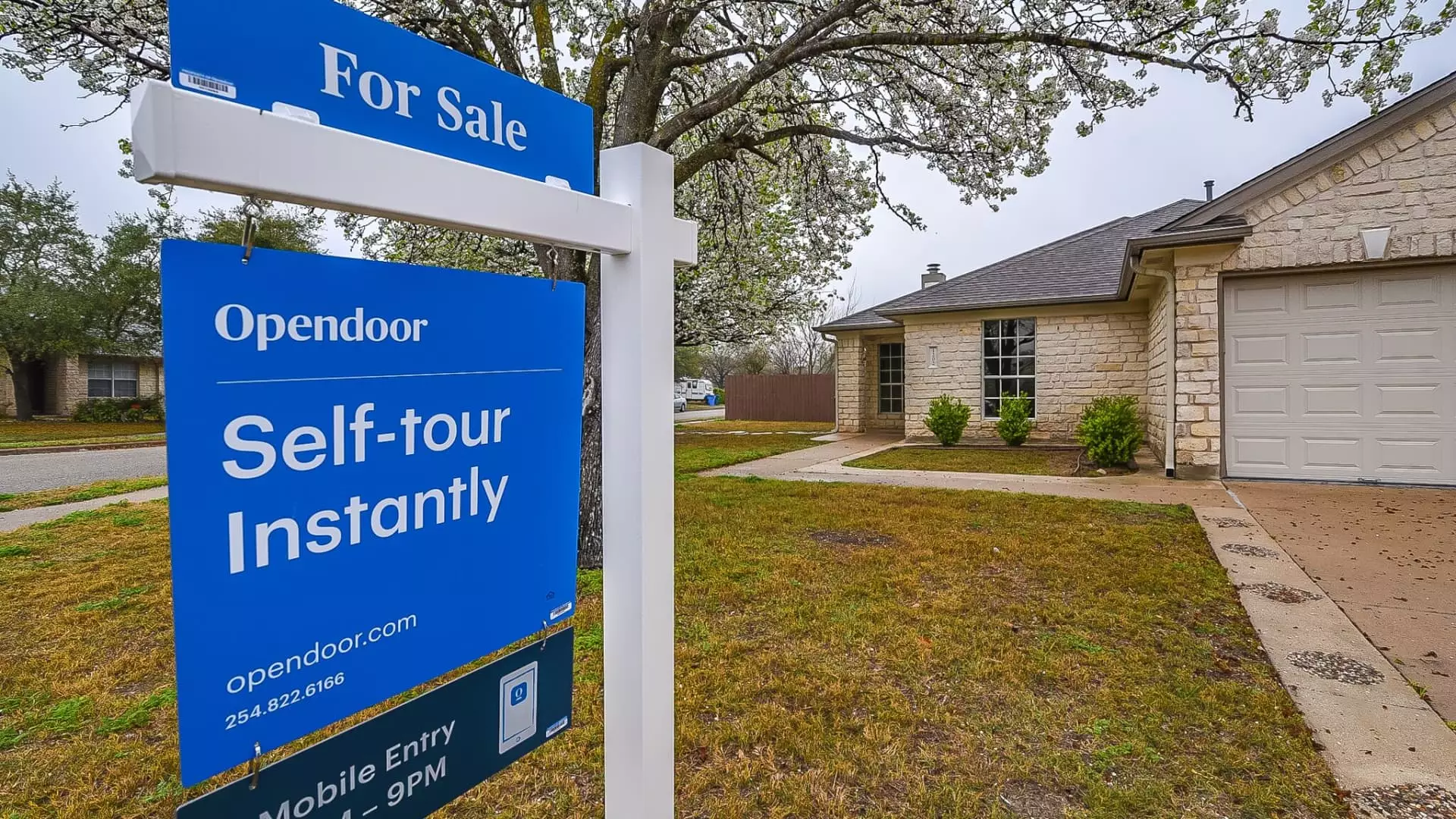In recent months, Opendoor has transformed from a virtually abandoned stock into a phenomenon capturing investor attention—its shares soaring nearly fivefold since July. This radical jump is not just a fleeting market anomaly but reflects a fundamental shift in how the company is perceived and its strategic direction. Historically, Opendoor faced immense skepticism, especially after its revenue plummeted by approximately 66% from 2022 to 2023, as the housing market grappled with rising interest rates. During that period, the company’s operations, heavily reliant on buying and flipping homes, took a significant hit, revealing the vulnerabilities of a business model exposed to macroeconomic headwinds.
Yet, what makes this recent rally notable is not merely the stock price movement but the internal response from leadership, which publicly expressed gratitude, acknowledging the renewed interest and enthusiasm from investors. However, beneath this veneer of optimism lies a fragile foundation, evidenced by the stock’s sharp decline of over 20% after earnings were disclosed. This pattern signals an underlying tension: a market eager to see a turnaround but cautious of overestimating potential growth in a challenging environment. The recent bounce, fueled partly by hedge fund backing, indicates institutional validation, but the real question remains whether Opendoor can translate this into sustainable profitability.
Strategic Shifts: From Capital-Intensive to Value-Driven
A critical element of Opendoor’s recent strategic pivot is its shift away from the capital-heavy “iBuying” model towards a more streamlined, less risky referral-based approach. CEO Carrie Wheeler emphasized this transition as “the most important strategic shift in our history.” This movement is vital; traditional iBuying required massive upfront capital to acquire homes, hold inventory, and then resell—an approach that became unsustainable as market conditions worsened. By refocusing on referrals and partnerships, Opendoor aims to leverage its technology to generate revenue with significantly lower capital requirements, thus improving margins and reducing exposure to declining home values.
This strategic reorientation aligns with broader trends in the real estate and tech industries, where nimbleness and operational efficiency have become paramount. Stripping away high-cost, high-risk activities can help stabilize the company’s financials, especially amid declining home prices and stagnant buyer demand. Nonetheless, the question remains whether this shift is enough to re-establish market confidence and translate into a robust revenue stream. Investors are cautiously optimistic, but market realities suggest that sustained growth will depend heavily on execution and macroeconomic factors that are, at present, unfavorable.
Market Realities and Outlook: The Road to Profitability Is Still Long
Despite the enthusiasm prompted by hedge fund backing and strategic reorganization, Opendoor’s recent financials tell a sobering story. The company’s revenue saw only a marginal rise last quarter—about 4%—while its net loss decreased but still remained substantial at $29 million. The outlook is even more challenging: projections for the upcoming quarter show revenue declining sharply by at least 36%, with an intent to acquire fewer homes compared to previous periods. This indicates a cautious stance, reflective of the broader housing market’s malaise.
High mortgage rates continue to suppress buyer affordability, leading to a surge in listings and a slowdown in sales—an environment hostile to Opendoor’s core operations. While the company aims to grow its referral business, such strategies generally generate lower immediate cash flows and require time to build momentum. The market’s skepticism is palpable; the stock, despite significant recent gains, remains vulnerable, trading below $2 after hours despite being up over 600% from its nadir.
What remains to be seen is whether Opendoor’s leadership can turn this strategic gamble into actual, measurable profitability. Hedge fund optimism, such as Eric Jackson’s projection of a potential $82 stock value, hinges on the assumption that market share gains and revenue recovery are inevitable. However, market dynamics are unpredictable, especially in an environment burdened with macroeconomic headwinds, persistent high mortgage rates, and unpredictable consumer behavior.
Opendoor stands at a crossroads—a company that once symbolized the promise of tech-enabled real estate, now navigating a rugged terrain of economic uncertainty and internal transformation. Its recent rallies reveal an investor appetite for turnaround stories, yet the underlying fundamentals remain fragile, and the road to sustainable profitability is far from clear. Whether the company can effectively execute its strategic pivot and regain its market footing depends largely on external economic factors and internal operational agility.
The narrative unfolding around Opendoor highlights a broader truth: in the modern economy, resilience often depends on the capacity to adapt swiftly and redefine value propositions. For now, Opendoor’s story is a testament to industry resilience, strategic reinvention, and the perilous optimism embedded within market sentiment. Only time will tell if this volatile chapter will culminate in a genuine recovery or serve as a cautionary tale of overzealous speculation amid macroeconomic headwinds.

